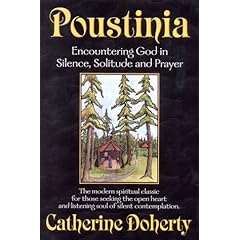 Log stardate ... wait wrong sci-fi series. Welcome to the second installment of Douglas Adams Hitchhiker's Guide series titled The Restaurant at the End of the Universe. After stealing the Heart of Gold, finding an ancient planet, and finding out the answer to Life, the Universe, and Everything (42, just in case you didn't know), our protagonists worked up quite an appetite. Where better to go than the Restaurant at the End of the Universe? Well, I would beg to differ being from New Orleans and all, I think Commander's Palace or Emeril's would be much more appetizing and enjoyable than eating a cow who wants to be eaten and watching the finality of the universe. Nonetheless, Adams wields with his pen another goop and hilarity worth your time. It might even work better at making your abs fit than 10 minute abs.
Log stardate ... wait wrong sci-fi series. Welcome to the second installment of Douglas Adams Hitchhiker's Guide series titled The Restaurant at the End of the Universe. After stealing the Heart of Gold, finding an ancient planet, and finding out the answer to Life, the Universe, and Everything (42, just in case you didn't know), our protagonists worked up quite an appetite. Where better to go than the Restaurant at the End of the Universe? Well, I would beg to differ being from New Orleans and all, I think Commander's Palace or Emeril's would be much more appetizing and enjoyable than eating a cow who wants to be eaten and watching the finality of the universe. Nonetheless, Adams wields with his pen another goop and hilarity worth your time. It might even work better at making your abs fit than 10 minute abs.In this installment, one meets the man who runs the universe, a very interesting look at the true wielding of power.
The major problem - one of the major problems, for there are several - one of the many major problems with governing people is that of whom you get to do it; or rather of who manages to get people to let them do it to them.To summarize: it is a well-known fact that those people who must want to rule people are, ipso facto, those least suited to do it. To summarize the summary: anyone who is capable of getting themselves made President should on no account be allowed to do the job. To summarize the summary of the summary: people are the problem.And so this is the situation we find: a succession of Galactic Presidents who so much enjoy the fun and palaver of being power that they very rarely notice that they're not.And somewhere in the shadows behind them - who?Who can possibly rule if no one who wants to do it can be allowed to?
Humility and the desire to see reality as it is forms a true leader and one who can wield power. Who thought comedy could be so theological (probably not Douglas Adams)?
We also find out the final answer to the question on whether man evolved from apes. The answer is no. We are rather descendants from a species called the Golgafrinchanms. The majority of the people were absolutely brilliant comparable to Einstein, Newton, Thomas Aquinas, Aristotle, da Vinci, and Hawking. However, there was a third of the population that was a tad bit less than mediocre whom the other considered absolutely useless. These useless individuals had such unprodigious jobs as hairdressers (not my own opinion), middle management, and telephone cleaners. The brilliant 2/3rds of the population tricked "the useless third" into fleeing from a dying planet (which was very easy to do). This third was set on a 3 year course towards a primitive planet called Earth. After crash landing, they bored to death the native population of Cro-Magnon and unfortunately reproduced, hence Earth-man. All has been solved. No need for scientists to work any longer.
If you wish to break the monotony and/or intensity of mid-semester reading, The Restaurant at the End of the Universe is a good choice (of course after you read the first). It will provide answers to the question on the top of your brain like: how to blow up a star, the time of the second coming, how to suspend the space-time continuum, or the nature and origin of our species.

